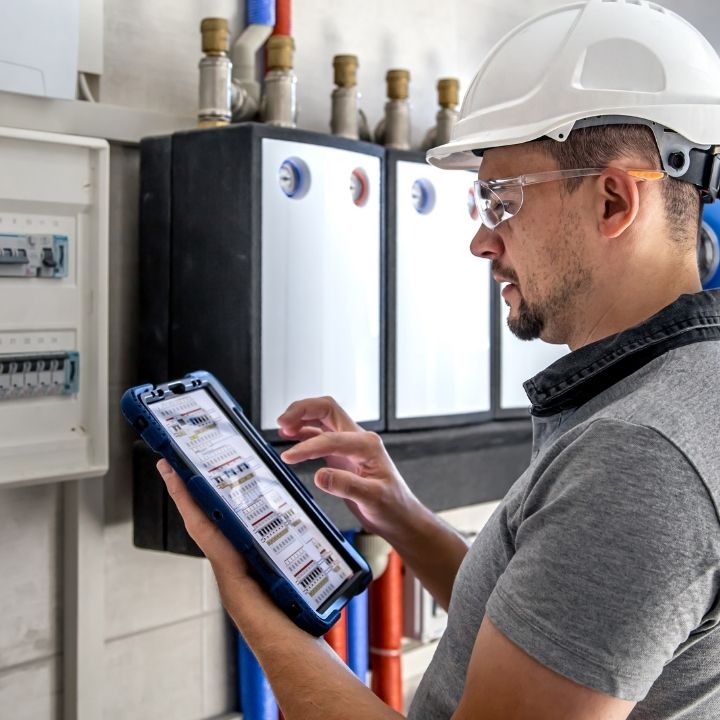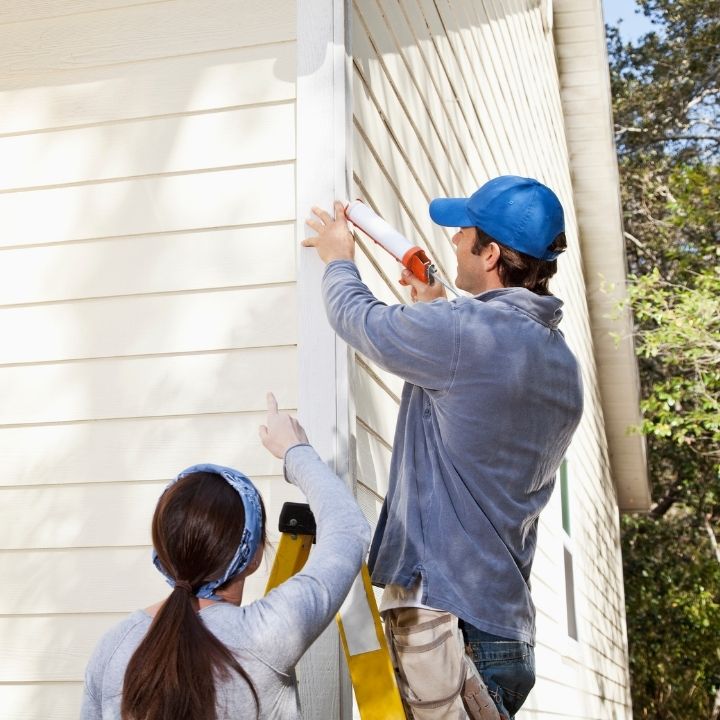Pre-Buy Home Inspection Tips for Buyers
Buying a home is one of the most significant investments you’ll make in your lifetime, and a home inspection before purchase can help you make informed decisions. Whether you’re a first-time buyer or an experienced homeowner, a thorough pre purchase house inspection is crucial before finalizing the purchase. A home inspection can reveal potential issues with the property, saving you from unexpected expenses and headaches down the line. In this guide, we’ll explore essential home inspection tips to ensure you make an informed decision.
A full home inspection prior to purchase is an essential step in the buying process. It provides a detailed evaluation of the property’s condition, highlighting any repairs or replacements needed. This information is invaluable for negotiating the purchase price or asking the seller to address specific issues before closing the deal. If you find yourself asking the question, can you get a home inspection before making an offer, the answer is yes (and we recommend you do!).
Identifying Structural Issues
Structural issues can be the most costly to repair and may affect your decision to purchase the property. An inspector will assess the foundation, beams, and other structural components to ensure they’re sound. Discovering problems like foundation cracks early on can save you from investing in a property that might require extensive repairs.
Uncovering Safety Concerns
Safety should always be a top priority when purchasing a home. During an inspection, potential hazards such as faulty wiring, radon, asbestos, or mold are identified. These issues not only affect the value of the home but can also pose serious health risks to you and your family. For people who wonder, do you get a home inspection before making an offer, uncovering safety concerns is a major benefit of opting for a pre purchase home inspection.
Planning for Future Expenses
Knowing the condition of major systems like plumbing, electrical, and HVAC allows you to anticipate future maintenance costs. A detailed inspection report will highlight areas that may need attention in the coming years. This foresight helps in budgeting and prevents financial surprises after you’ve settled into your new home.
Leveraging the Inspection Report for Negotiation
The inspection report is a powerful tool in the buying process. Use it to your advantage by negotiating repairs or price reductions with the seller. A well-documented report can strengthen your case, allowing you to address significant issues before closing the deal. It’s an opportunity to ensure you’re getting the best value for your investment.
Understanding Local Building Codes and Standards
A qualified, licensed home inspector will be familiar with local building codes and standards, ensuring the property meets legal requirements. This knowledge is critical, especially if the home has undergone renovations or additions. Ensuring compliance helps avoid future legal issues and ensures the property is safe and habitable.
How to Get a House Inspected
Hiring a qualified home inspector is key to a successful home inspection. Here’s how to find the right professional:
Researching and Gathering Referrals
Start by asking for recommendations from friends, family, or real estate agents who have recently purchased homes. Personal experiences can provide valuable insights. Additionally, explore online platforms for reviews and ratings to identify reputable inspectors in your area. A consistent track record of positive feedback is a good indicator of reliability.
Verifying Credentials and Certifications
Ensure the inspector holds the necessary licenses and certifications from recognized organizations, such as the American Society of Home Inspectors (ASHI) or the International Association of Certified Home Inspectors (InterNACHI). Membership in these organizations often requires adherence to strict standards, ensuring you’re working with a qualified professional.

Assessing Experience and Specialization
Experience matters, especially when it comes to inspecting different types of properties. Whether you’re buying an older home with unique challenges or a modern build, choose an inspector with relevant experience. An inspector familiar with local building practices and common regional issues will provide more accurate assessments.
Reviewing Sample Inspection Reports
Request sample reports from potential inspectors to evaluate their thoroughness and attention to detail. A comprehensive report should be clear and easy to understand, highlighting both major concerns and minor issues. This review will give you an idea of what to expect and help you choose an inspector who meets your standards.
Discussing Availability and Timing
In a competitive real estate market, timing is crucial. Discuss the inspector’s availability to ensure they can accommodate your schedule. Quick access to an inspection can be a deciding factor, especially if you need to move swiftly in your purchasing decision.
What to Expect During a Pre-Inspection
A pre-inspection involves a comprehensive examination of the property’s major systems and structures. Here’s what you can expect:
Detailed Examination of Exterior Components
The exterior inspection involves assessing the roof, gutters, siding, and foundation for any signs of damage or wear. Inspectors also evaluate drainage systems and landscaping to ensure water flows away from the property, preventing potential flooding or erosion issues. A thorough exterior check is crucial for identifying issues that could lead to more significant problems.
Comprehensive Interior Evaluation
Inside the home, inspectors examine walls, ceilings, floors, windows, and doors for structural integrity and signs of wear. They look for cracks, leaks, or other issues that may indicate underlying problems. An interior inspection helps ensure the home is safe and comfortable, highlighting areas that might need immediate attention.
Plumbing System Analysis
A thorough plumbing inspection involves checking pipes, fixtures, water heaters, and drainage systems. Inspectors look for leaks, corrosion, or outdated materials that could lead to future issues. Ensuring the plumbing is in good condition is vital to avoid costly repairs after purchasing the home.
Electrical System Safety Checks
Inspectors will evaluate the electrical panel, wiring, outlets, and light fixtures for safety and functionality. This includes checking for outdated systems or potential hazards like exposed wires. A safe and efficient electrical system is essential for the safety of your home and family.
HVAC System Evaluation
The heating, ventilation, and air conditioning systems are assessed for efficiency and possible defects. Inspectors will check for proper installation, maintenance, and any signs of wear or malfunction. A well-maintained HVAC system is crucial for comfort and energy efficiency.

Attic and Basement Inspections
Attics and basements are inspected for insulation, ventilation, and signs of moisture or pest infestations. These areas often reveal issues that might not be visible elsewhere in the home. Proper insulation and ventilation are key to energy efficiency and preventing mold growth.
Understanding Optional Pre-Offer Inspections
In competitive markets, a pre-offer inspection can be a strategic move. This inspection allows you to make an informed offer quickly, potentially without contingencies. By identifying major issues upfront, you can adjust your offer or walk away if necessary, giving you an edge in negotiations.
Tips for First-Time Buyers
As a first-time buyer, navigating the inspection process can be overwhelming. Here are some tips on home inspection for first time buyers to help you through it:
Importance of Attending the Inspection
Attending the inspection provides an opportunity to engage directly with the inspector. You can ask questions, gain insights, and receive real-time explanations about any issues found. Being present helps you understand the property’s condition better and makes the inspection report more meaningful.
Thoroughly Reviewing the Inspection Report
Once you receive the inspection report, review it in detail. Focus on major issues that could affect your decision to purchase the home. Discuss these findings with your real estate agent to evaluate their impact on the property’s value and your willingness to proceed with the purchase.
Prioritizing Significant Issues
While it’s important to note all findings, prioritize significant issues found during the pre inspection that impact the property’s safety or value. Cosmetic flaws can be fixed later, but structural or safety concerns need immediate attention. This prioritization helps you focus on what’s most important in negotiations.
Strategically Using the Inspection Report
Use the inspection report as a tool in negotiations with the seller. The benefit of a pre buy home inspection is it allows you to work with your real estate agent to determine the best approach, whether it’s requesting repairs, asking for a price reduction, or negotiating other terms. A strategic use of the report can lead to a more favorable deal.
Educating Yourself on Home Maintenance
As a first-time buyer, take this opportunity to learn about home maintenance. Understanding how to care for your new home helps prevent future issues and prolongs the lifespan of its systems and structures. Knowledgeable homeowners can better manage their property and avoid costly repairs.

Common Home Inspection Pitfalls
Avoid these common mistakes to ensure a smooth inspection process:
Importance of Not Skipping the Inspection
Skipping the home inspection, even if the property seems perfect, is a risky move. Many issues are not visible to the untrained eye and could lead to expensive repairs later. Always insist on a comprehensive home sale inspection to uncover potential problems before they become your responsibility.
Evaluating Inspectors Beyond Cost
While cost is an important consideration, choosing an inspector based solely on price can be detrimental. A cheap inspection may not be thorough, leading to overlooked issues. Invest in a qualified and experienced inspector to ensure a comprehensive evaluation of the property.
Heeding the Inspector’s Recommendations
The inspector’s recommendations should be taken seriously. Ignoring these can result in significant problems in the future. Address any issues identified in the report promptly, whether it’s negotiating repairs with the seller or planning for future maintenance.
Communicating Effectively with the Inspector
Maintaining open communication with your inspector is essential. Don’t hesitate to ask questions or seek clarification on any points in the report. A good inspector will be willing to explain their findings and offer advice on how to address identified issues.
Understanding the Limitations of an Inspection
Remember that even a thorough inspection has its limitations. Inspectors cannot see inside walls or predict future problems. Use the inspection as a guide, but remain aware of its boundaries and be prepared for unforeseen issues after moving in.
Conclusion
A home inspection prior to buying is an indispensable part of the home buying process. It provides insight into the overall condition of the home and ensures you’re making a sound investment. By understanding the inspection process and working with a qualified inspector, you’ll be better prepared to make informed decisions and negotiate effectively. No matter where you’re located in Florida, we have licensed and insured inspectors statewide who are ready to serve you. Remember, a thorough inspection today can save you from unexpected surprises and expenses in the future. Happy house hunting!
